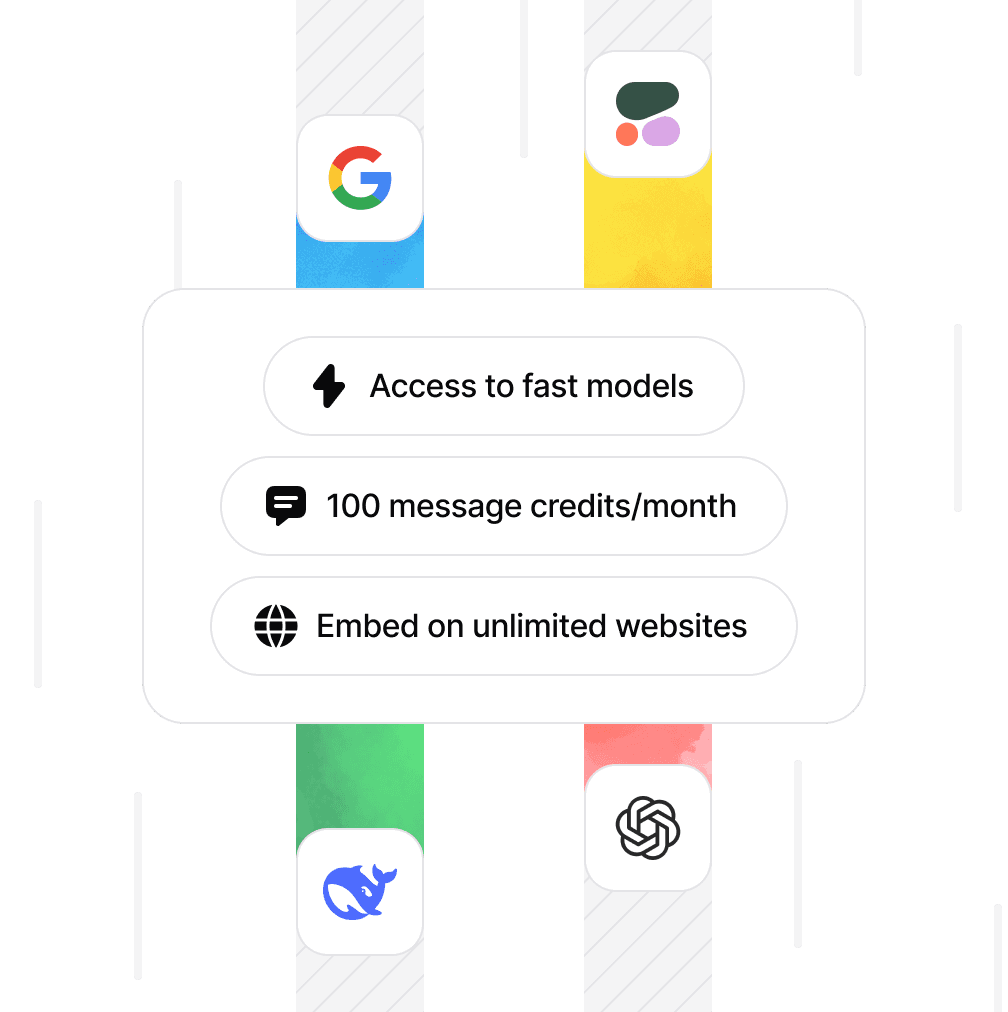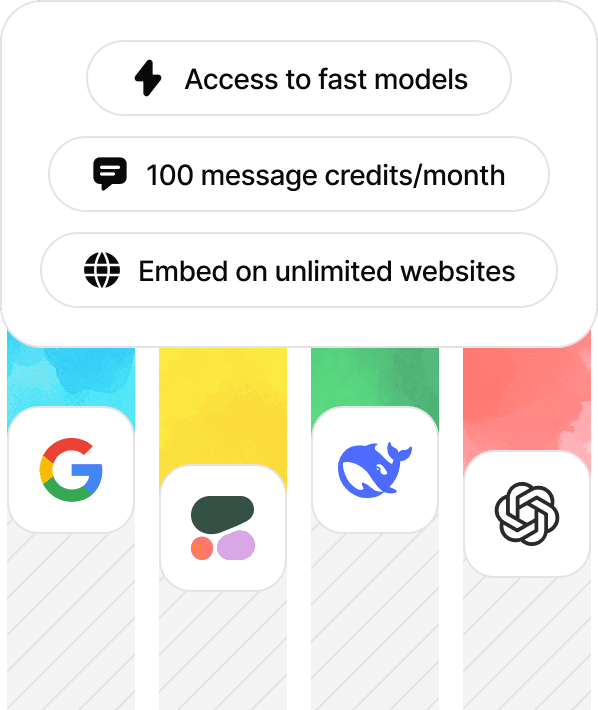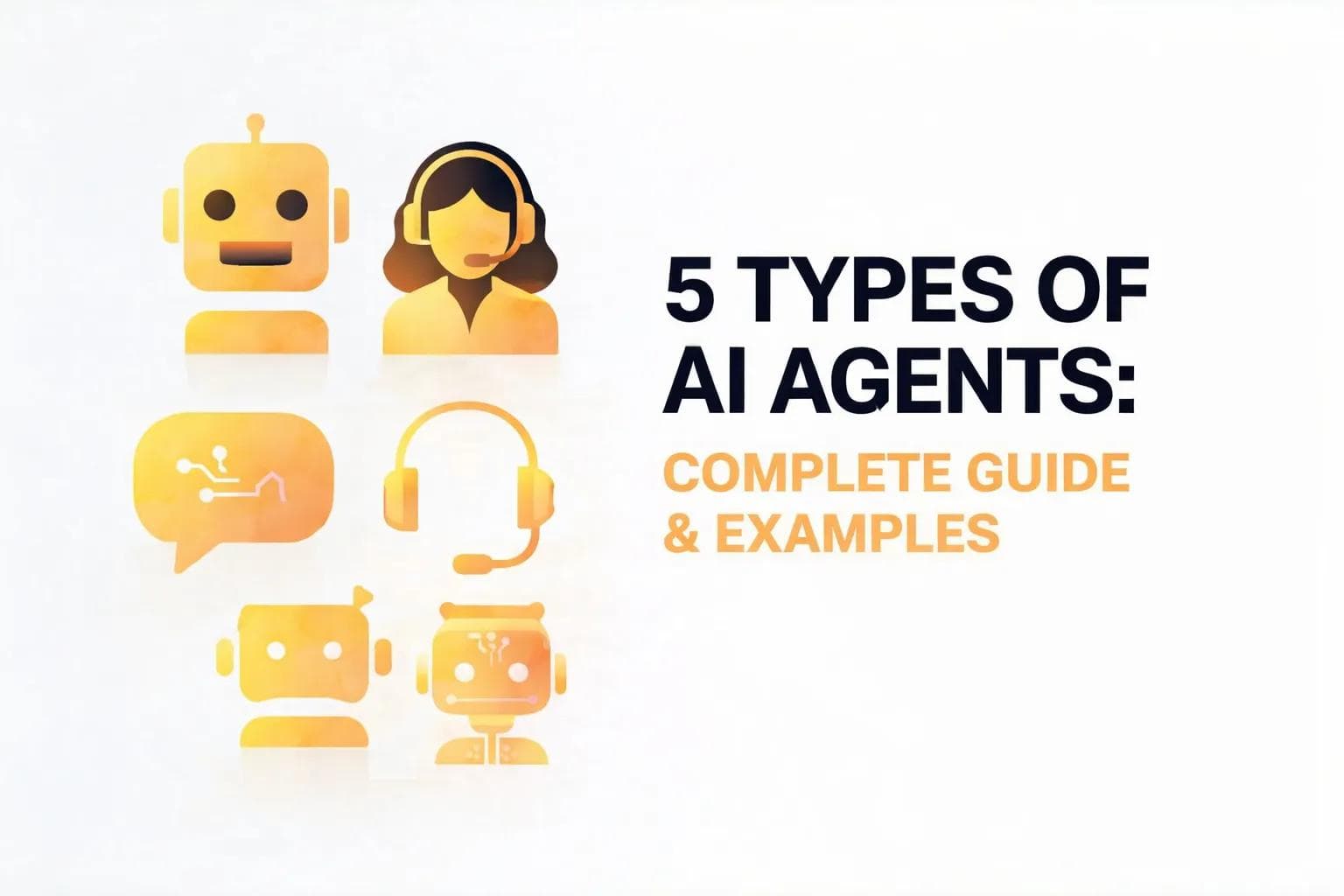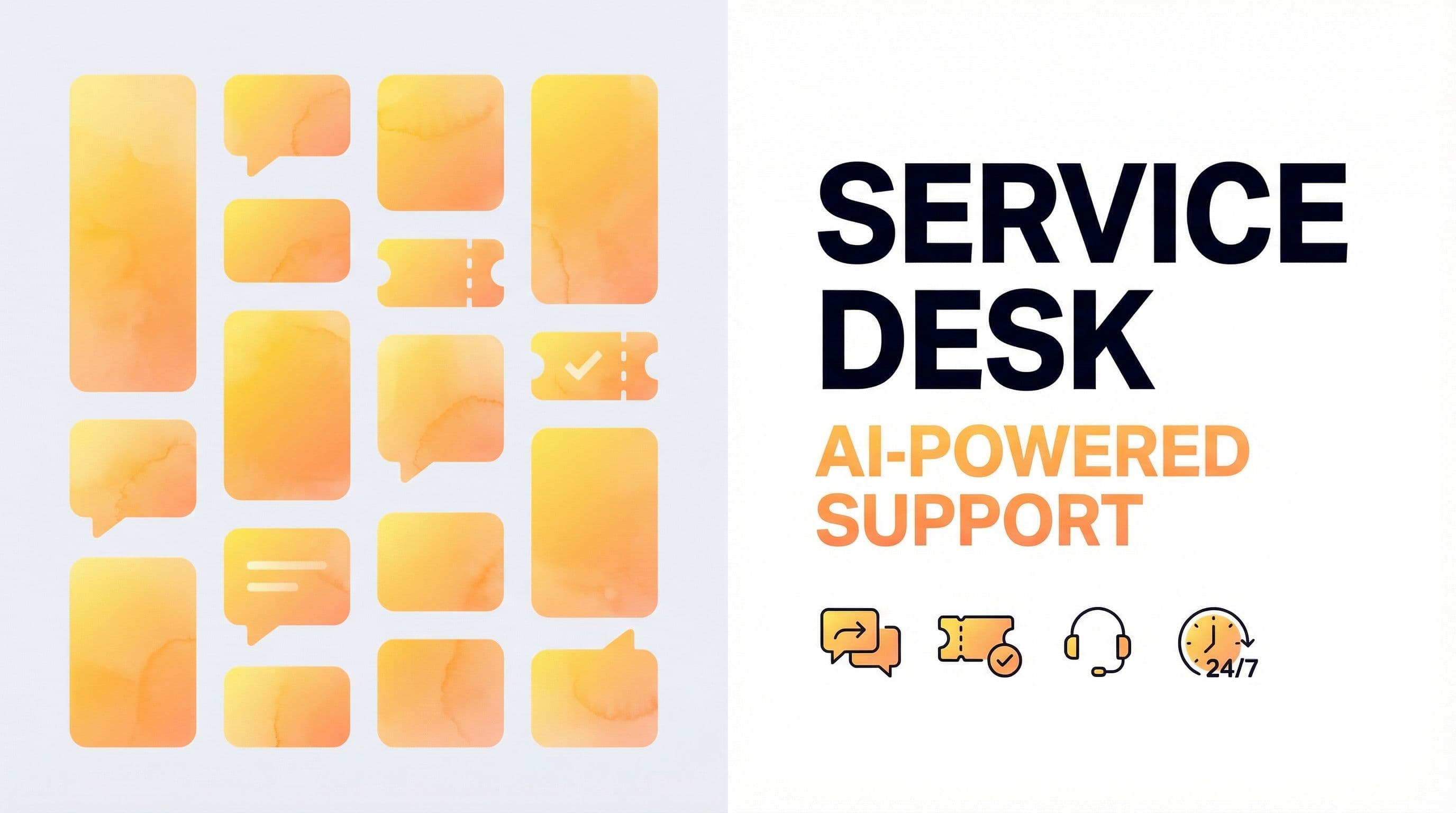6 TOP AI Tools for Customer Support
Max T
May 23, 2025
9 min read
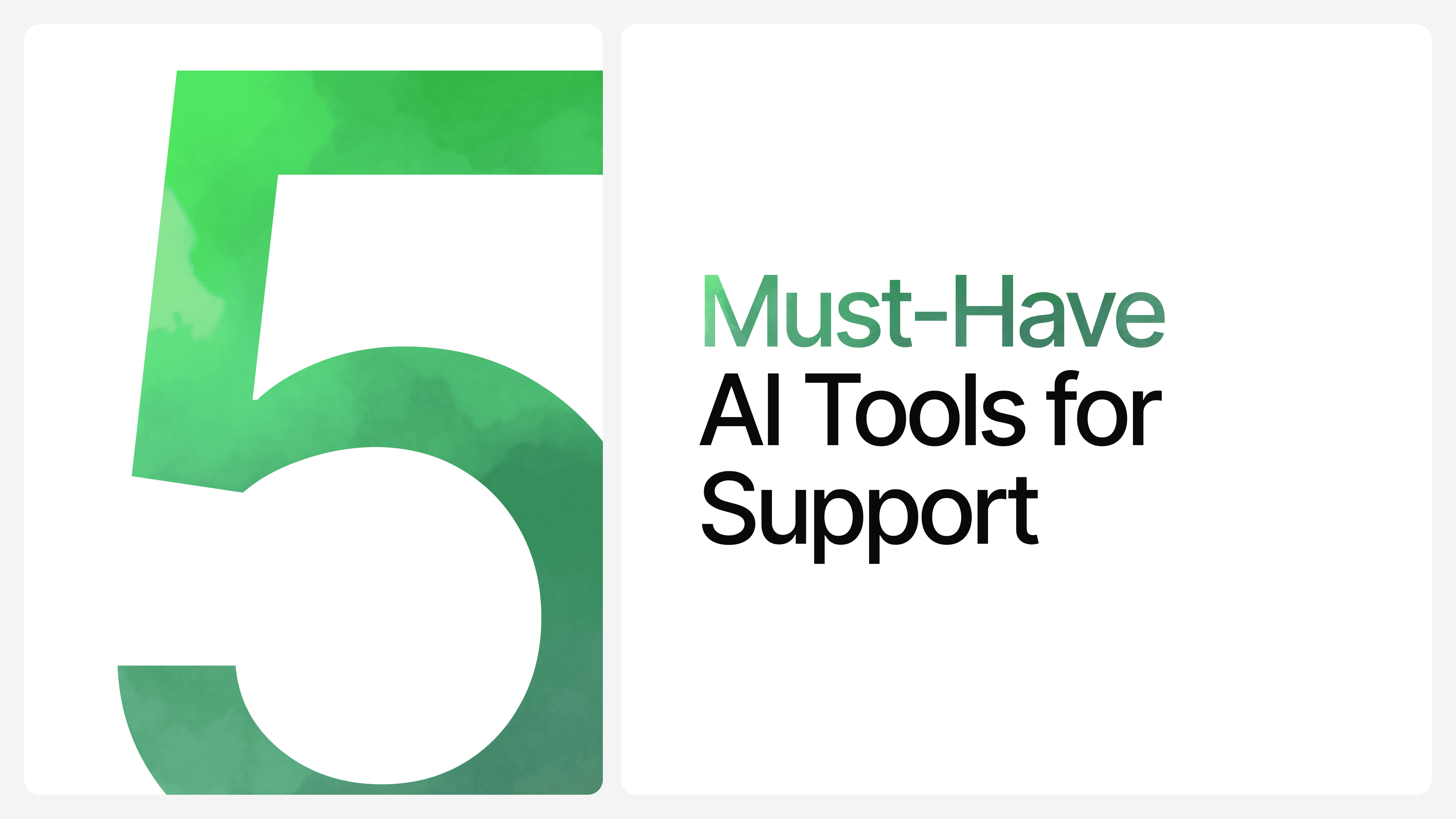
Since generative AI entered the mainstream, the phrase “game changer” has been tossed around a lot.
You hear it everywhere.
AI is a game-changer for writing. A game changer for education. For productivity. For creativity.
It's become a reflex. A go-to headline.
But even with all the noise, some areas deserve that label without exaggeration. Customer support is one of them.
In fact, AI hasn’t just been a helpful add-on here. It’s redefined what customer service can look like—both for the teams running it and the customers experiencing it.
Faster response times. Fewer repetitive tickets. Personalized answers, at scale. And a big one: consistent quality, even at 3 a.m.
These aren’t surface-level improvements. These are structural shifts.
So in this post, we’re diving into AI tools that have truly disrupted customer support—tools that aren’t just flashy demos, but real systems powering real businesses.
I’ve used many of these tools first-hand. And I can tell you: the best ones don’t just replace agents—they extend your team, automate the right kind of tasks, and make support feel less like a cost center and more like a growth engine.
Why Should You Care About AI and Customer Support?
Is it just hype? Or is there something real that can improve how you serve customers?
I’ve used plenty of customer support platforms over the years. Some had basic AI features slapped on as an afterthought. Some had none at all. Tools like Intercom, Zendesk—familiar names to anyone in support.
But, like I’ve said; the generative AI explosion “changed the game.”
Here’s what I’ve seen firsthand:
- Speed of resolution. AI can instantly surface answers or solutions, slashing the time your customers wait. This isn’t just small tweaks—it’s a drastic boost in how fast problems get solved.
- Ability to take real action. Modern AI chatbots don’t just chat—they can update customer details, redeem promo codes, or even trigger refunds without a human in the loop. This cuts down back-and-forth and gives your team time to focus on complex issues.
- 24/7 availability. Your customers don’t work 9 to 5. With AI, support is always on, so no matter the time zone or hour, your customers get answers. That level of responsiveness builds trust and loyalty.
- Knowledge that actually helps. Remember the frustrating chatbots that only repeated FAQs or ended with “Let me connect you to a human”? That’s old news. Today’s AI support bots can be trained on your real, up-to-date data, meaning they truly understand your product, services, and policies.
- Consistency and scalability. AI ensures every customer gets the same accurate info and experience, even when your support team is overwhelmed. This keeps quality high and reduces errors.
These benefits aren’t theoretical. I’ve experienced them personally—both as a support operator and as a customer. The difference between before and after generative AI tools hit the scene is massive. And if you're considering outsourcing customer service to scale faster or handle volume, AI support tools can offer a powerful alternative or supplement. They help you deliver high-quality support internally—without relying solely on third-party vendors.
So yes, you should care.
If you want to upgrade your customer support game, AI tools aren’t just an option—they’re becoming essential.
My Recommendation for AI Tools for Customer Support
There are loads of AI customer support tools out there. But not all are created equal. Some are decent. Some are great. And some truly excel.
The tools I’m about to share? These are the ones I’ve used hands-on, for a long time, and can vouch for. They deliver real AI usefulness—not just buzzwords.
If you decide to try them, you’ll see what I mean. These tools can actually transform your support experience.
Remember, this isn’t a complete list. But these are the best I’ve tested and trust to recommend.
Let’s start with one of my top recommendations.
1. Chatbase
Chatbase is an AI customer service agent for magical experiences.
AI has shown up in all sorts of ways—AI voice, AI gatekeeping, automated replies. But Chatbase is different. It’s not an add-on or afterthought. It was built at the height of the generative AI wave, from the ground up as an AI-first platform.
That foundation matters.
You train it once—using your docs, help center pages, or any internal resources—and instantly, you’ve got an AI support agent that knows your business deeply. It’s not just guessing. It’s not hallucinating. It’s responding with real understanding, based on real context.
And unlike most AI tools, Chatbase doesn’t stop at giving answers. It can take actions. Update a subscription. Redeem a promo code. Trigger a workflow. As long as you’ve connected the right tools, it can get things done—directly in the chat.
Why Chatbase?
- AI-first, not AI-flavored. Most platforms slapped AI on top of legacy systems. Chatbase was built with generative AI at the core.
- Takes action, not just talks. Most AI tools for customer support stop at giving instructions. Chatbase executes them—refunds, account updates, product lookups, all handled natively.
- Fast to set up. Upload your documents, knowledge base, or help content, and your bot is trained in minutes. No complex logic trees or manual scripting.
- Deep understanding, not shallow automation. Chatbase bots don’t just answer FAQs—they reflect your brand, tone, and support priorities.
- Modern support, real impact. With Chatbase, AI becomes a true extension of your support team—working 24/7, never dropping quality.
2. Intercom
After Chatbase, Intercom is another heavyweight in this space that I love.
It’s been around for a while—long before the generative AI boom—but it’s adapted quickly and aggressively. What was once just a live chat tool has now evolved into a full customer communication platform with deeply integrated AI capabilities.
If you’re a SaaS company or a scaling tech startup, Intercom is likely already on your radar. And now, with their AI agent "Fin", they’re playing seriously in the AI support game.
Why Intercom?
- "Fin" is enterprise-grade AI. Intercom’s AI assistant, Fin, is trained on your support content and delivers answers with the reliability you'd expect from a top-tier support agent. It doesn’t hallucinate and even knows when to escalate to a human.
- Blends human + AI naturally. One of Intercom’s biggest strengths is how well it mixes automation and real-time human support. AI handles the repetitive stuff, while agents step in seamlessly when needed.
- Highly customizable workflows. You can build complex flows, triage systems, and routing logic—all inside the Intercom platform. Perfect for teams with layered support needs.
- Smart inbox + ticketing. Intercom combines live chat, AI responses, email, and ticketing into a single streamlined workspace.
- Built for scale. If you’re running a high-volume operation and want AI tools for customer support that grow with you, Intercom is a serious contender.
3. Tidio
Tidio is one of those tools that started out as a live chat solution—but it evolved fast.
Now, it's a full-stack customer support platform that integrates live chat, ticketing, and automation with a surprisingly powerful layer of AI.
If you’re running an e-commerce store or small business and want to blend human support with AI-powered efficiency, Tidio hits a sweet spot.
You don’t need to rebuild your entire stack. You just plug it in, and it starts adding value immediately.
Why Tidio?
- Live chat meets AI. Tidio lets you offer real-time support via chat while its AI handles repetitive queries in the background—things like “Where’s my order?” or “How do I return this?”
- Lyro AI assistant. Their AI tool, Lyro, can be trained on your help center or product content. Once trained, it starts resolving tickets on autopilot. Think ChatGPT, but built for customer support.
- Easy e-commerce integrations. Tidio works natively with Shopify, WooCommerce, BigCommerce, and more—making it a solid pick if you run an online store.
- All-in-one inbox. AI chats, human chats, emails, and tickets all show up in a single dashboard, so your team isn’t juggling between tools.
- Cost-effective AI. Unlike bigger enterprise solutions, Tidio offers an affordable way to bring AI tools for customer support into your business without a massive budget.
4. Zoho Desk
Zoho Desk flies under the radar a lot, but it’s one of the most practical and underrated support tools—especially if you're already using other Zoho products.
It’s a help desk platform at its core, but with AI baked in through its assistant, Zia, it becomes much more than just ticketing.
If you're a mid-sized business looking for something stable, functional, and quietly powerful—with a layer of AI support—Zoho Desk is worth a serious look.
Why Zoho Desk?
- Zia, the AI assistant. Zia analyzes incoming tickets, predicts sentiment, suggests responses, and even flags anomalies. It’s not just reactive—it’s proactive support.
- Context-aware support. Zoho Desk pulls data from other Zoho apps like CRM, Inventory, or Books, giving agents full customer context right in the support view.
- Smart automation. From ticket routing to SLA monitoring and canned responses, Zoho Desk blends traditional support logic with AI intelligence.
- Multi-channel support. Email, chat, social, voice—everything flows into one place. AI helps prioritize and organize it all.
- Affordable and scalable. It's not flashy, but it gets the job done without the Intercom-level pricing. Ideal if you’re building a full support stack on a budget.
5. Freshdesk
Freshdesk is one of those tools that’s been in the customer support game for a long time—but it hasn’t been left behind.
With its AI layer, Freddy, it brings a modern twist to traditional help desk software. You get the reliability of a battle-tested support platform with the flexibility of AI automation baked in.
Whether you're running a startup or a growing enterprise, Freshdesk delivers a well-balanced mix of automation, self-service, and human support.
Why Freshdesk?
- Freddy AI for smart responses. Freddy can auto-suggest replies, categorize tickets, detect intent, and surface relevant articles in real time. It's like having a co-pilot for your support team.
- Strong ticketing foundation. Even without AI, Freshdesk is already one of the most robust ticketing systems out there. With AI tools for customer support added in, it’s even more effective.
- AI-powered chatbot + self-service. You can build a bot that resolves common issues instantly, or guide users to your knowledge base—cutting down ticket volume drastically.
- Built for teams. Collision detection, team inboxes, SLA management, and analytics—all enhanced with AI for faster and smarter decision-making.
- Flexible pricing. Freshdesk has plans for startups all the way to enterprises, so you can ease into AI without committing to an expensive stack from day one.
6. KrispCall
KrispCall is an AI-powered modern telephony platform that merges cloud telephony, messaging, and intelligent automation into one streamlined system. If your business depends on phone-based customer interactions and you want to supercharge those conversations with AI without losing the human element, KrispCall delivers exactly that balance. You don't need to rip and replace your current setup. Just layer it on top, and watch your support quality improve instantly.
Why KrispCall?
- Smart call handling. KrispCall's AI provides automated responses tailored to customer inquiries, taking care of standard questions while your agents handle the conversations that actually need human expertise.
- AI-generated conversation insights. Every call gets automatically summarized, helping teams stay synchronized on customer interactions no matter where they're working from—a game-changer for remote support teams.
- Crystal-clear communication. The platform's AI actively eliminates background noise and audio interference, ensuring every customer call sounds professional and distraction-free.
- Instant global presence. Deploy phone numbers across 100+ countries while maintaining that local, personal connection your customers value.
- Accessible pricing. Rather than forcing you into expensive enterprise contracts, KrispCall makes AI-powered customer support affordable for businesses of any size.
Final thoughts
AI isn’t just a buzzword anymore in customer support. It’s changing how support works—for the better.
Faster replies. Smarter answers. Support that’s always on. And even chatbots that can do things, not just talk. These aren’t just nice-to-haves. They’re real upgrades I’ve seen using the tools we covered here.
Of course, not every tool lives up to the hype. But the good ones? They’re seriously worth it.
And if you want to see what AI in customer support should feel like, try Chatbase.
I’ve used it, tested it, and I genuinely think it’s one of the best out there.
→ Give Chatbase a spin and see the difference for yourself.
Share this article:
